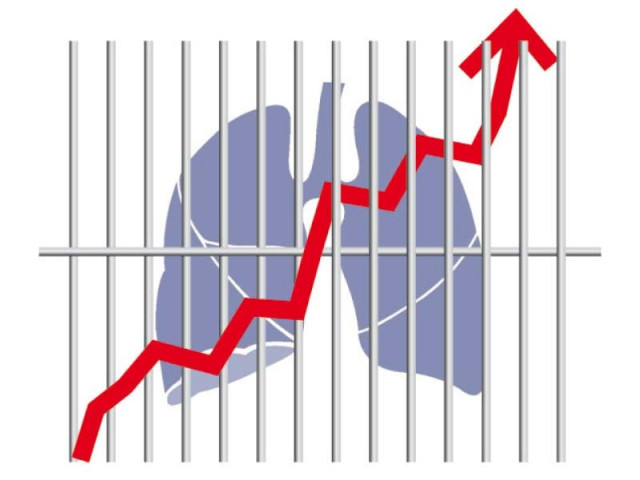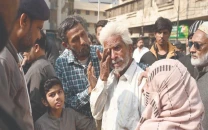A global challenge: Fight TB early on to increase chances of controlling it
Pakistan is sixth in WHO’s ranking of the burden caused by the drug-resistant strain.

Healthcare: 63,000 people in Pakistan have tuberculosis, according to Dr Abdul Bari Khan, Indus Hospital’s CEO.
If you have been coughing for over two weeks and feel slightly feverish, don't procrastinate and take a trip to a diagnostic lab to get checked for tuberculosis (TB), as you might be putting your loved ones at risk.
At a World TB Day event organised on Saturday at Indus Hospital, health experts cautioned the audience about the dangers of the disease. Tuberculosis is still a major challenge in Pakistan, as 630,000 people suffer from it, making the country one of the top 10 where the disease is a huge burden, said Dr Abdul Bari Khan, Indus Hospital’s CEO. Quoting World Health Organisation estimates, Khan added that with regard to drug-resistant tuberculosis, Pakistan ranks sixth among the countries with a high burden of the disease.
“Lack of awareness, poor hygiene and poverty which compels more people to live in a single room, are the main factors behind the spread of tuberculosis,” he said. He said that more than 4,500 patients are under the Directly Observed Treatment Short Course at the hospital.
National TB Control Programme’s officer, Dr Syed Saleem Hassan, told The Express Tribune that awareness about TB has been increasing over the past 12 years and more people have been registering with his organisation in Sindh. “We had a few hundred registered patients in the province when we started the programme in 2000 but now we have 57,000.” He added that if the programme continues at the same pace, the number of patients should start dipping from 2015.
According to Dr Hassan, it takes six months for recently infected patients to complete treatment and two years for those who have the drug-resistant strain. “There were misperceptions about tuberculosis - patients’ families used to keep them away from hospitals. But now, within 15 days, patient starts recovering and the chance of infecting others also plummets.”
He said the disease could spread through saliva and patients should cover their mouths while coughing. They should be kept in large, ventilated rooms. All family members who start coughing persistently should also be screened.
Former test cricketer Sikander Bakht, a guest at the programme, shared his views on how to face the disease and stressed the need to fight it openly instead of being scared. He said most of his friends do not consult a doctor when they develop symptoms because they fear being diagnosed with a deadly illness. “If you have your disease diagnosed at an early stage and you fight it through proper treatment, you can control it. Never let the disease overcome you.” Film and television actor Zeba Bakhtiar also spoke at the occasion.
Tuberculosis patients who recovered after being treated at the hospital also shared their experience. One of them was Sunil Magji from Lyari who said that his brothers brought him to the hospital as he couldn’t even walk. Within a week he noted a dramatic improvement in his health and six months later, he recovered completely. No Magji is looking for a job.
The Whistle Blowers, a group of graduates from National Academy of Performing Arts also entertained the crowd with their play which depicted scenes from government offices.
Published in The Express Tribune, March 24th, 2013.



















COMMENTS
Comments are moderated and generally will be posted if they are on-topic and not abusive.
For more information, please see our Comments FAQ